- Home
- About
Your reliable partners for IOT & IIOT Solutions
We intend to provide a reliable and multi-connectivity IoT and network platform to help our Customers and Partners successfully deploy their IoT use cases relying on robust ICT & IOT infrastructures”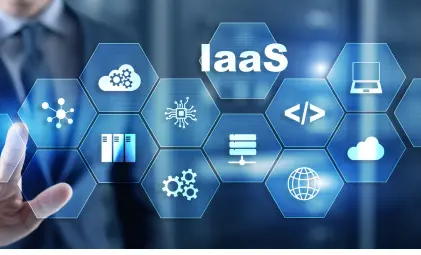

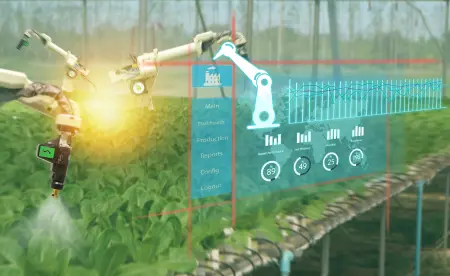
- Services
Services
We provide the best breed of professionals in designing ICT & IOT services and solutions with quick turnaround times.- Implementation Services
- Service Level Management
- Project Management Services
- Predictive Maintenance Solutions
- ELV Solutions

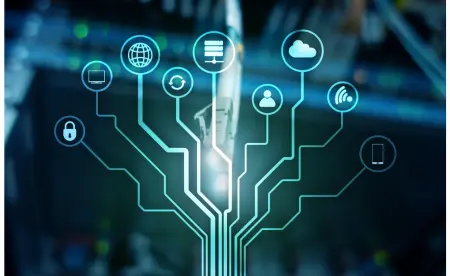

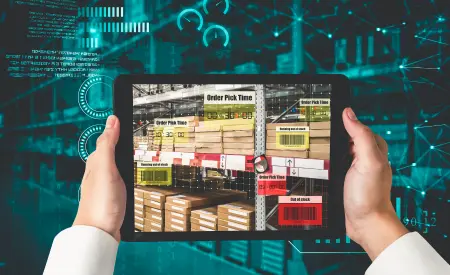
- Products
Products
Find the widest range of IT and automation products from the best of brands in IT, Communication, Audio Video , Trackers, Gateways, Building management systems and Utility services.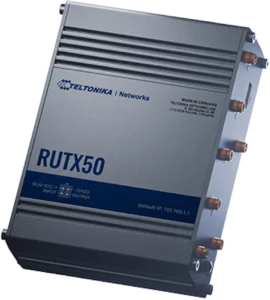


- Partners
- Blog
- Contact
Smart City Solutions

Overview
Smart cities leverage technology and data to enhance the quality of life for residents, improve urban services, and optimize resource efficiency. These cities use advanced communication and information technologies to gather, analyze, and utilize data, with the goal of enhancing the performance of infrastructure, reducing costs, and increasing overall sustainability. Here's an overview of key aspects of smart cities:
- High Speed & Low latency Technological Infrastructure using the IOT and 5G network to collect real time data from interconnected devices for information on traffic, weather and utilities
- Data analytics using Big Data for extracting valuable insights and help on informed decisions related to urban planning, transportation and resource management. Also Machine learning algorithms can be used to analyse patterns, predict trends and optimise various processes.
- Enhanced Urban mobility using smart transportation to reduce traffic congestion, monitor traffic in real time, provide smart parking solutions and integrate multiple mass transit systems.
- Focused energy management with sustainable energy sources incorporating solar and wind power and optimizing energy consumption by deploying smart grids using efficient energy distribution and management systems.
- E-governance through digital platforms for citizens with access to government services and engage community driven collaboration using smart technology.
- Critical infrastructure management for water, waste, public safety and other infrastructure such as roads and bridges using predictive maintenance services.
Features
Smart cities leverage technology and data to enhance the quality of life for residents, improve the efficiency of urban services, and promote sustainable development. Here are some key features commonly associated with smart cities:
- IoT Sensors: Deploying a network of sensors to collect real-time data on various aspects like air quality, traffic flow, waste management, and energy consumption.
- Smart Grids: Implementing intelligent energy distribution systems to optimize energy usage and reduce waste.
- High-speed Internet: Ensuring widespread access to high-speed, reliable internet for residents, businesses, and city services.
- 5G Technology: Implementing advanced mobile networks for faster and more reliable communication.
- Smart Transportation: Integrating technology to improve public transportation, reduce traffic congestion, and enhance overall mobility.
- Electric Vehicles: Promoting the use of electric vehicles and developing charging infrastructure.
- Big Data: Utilizing data analytics to gain insights into city operations, optimize resource allocation, and improve decision-making.
- Predictive Analytics: Forecasting trends and anticipating issues to proactively address challenges.
- Digital Platforms: Providing online platforms for citizens to access government services, pay bills, and participate in civic activities.
- Open Data: Making government data accessible to the public to encourage transparency and innovation.
- Energy-efficient Design: Constructing and retrofitting buildings with energy-saving technologies.
- Building Automation: Using sensors and automation to manage lighting, temperature, and other building systems.
- Green Initiatives: Implementing eco-friendly practices such as waste reduction, green spaces, and sustainable urban planning.
- Renewable Energy: Integrating renewable energy sources like solar and wind power.
- Surveillance Systems: Utilizing smart cameras and sensors for public safety and emergency response.
- Data-driven Policing: Analyzing data to predict and prevent crime.
- Telemedicine: Offering remote healthcare services and leveraging technology for health monitoring.
- Health Data Management: Using data for public health planning and disease prevention.
- Digital Learning: Introducing technology in education for remote learning and interactive classrooms.
- Smart Libraries: Incorporating digital resources and technology in libraries.
- Early Warning Systems: Using technology to detect and respond to natural disasters.
- Smart Infrastructure for Resilience: Designing infrastructure to withstand and recover from disasters.
- Smartphone Apps: Providing applications for citizens to report issues, access information, and engage with local government.
- Community Feedback Systems: Gathering and responding to citizen feedback to improve city services.
Products
Smart cities utilize a variety of technologies and products to enhance efficiency, connectivity and sustainability. Here are some key products used in smart cities technology:
Internet of Things (IoT) Devices:
• Sensors and actuators: These devices collect data from the environment and can trigger actions based on that data.
• Smart meters: Used for monitoring and managing utilities such as electricity, water, and gas.
Communication Infrastructure:
• 5G networks: High-speed, low-latency networks that enable seamless communication between devices.
• Fiber optics: High-speed broadband connections for efficient data transfer.
Smart Grids:
• Advanced Metering Infrastructure (AMI): Allows two-way communication between utilities and consumers for better energy management.
• Grid automation devices: Enable real-time monitoring and control of electricity distribution.
Urban Mobility:
• Intelligent Transportation Systems (ITS): Includes traffic management systems, smart traffic lights, and vehicle-to-everything (V2X) communication.
• Smart parking systems: Utilize sensors and apps to help drivers find parking spaces efficiently.
Energy Management:
• Smart lighting: Energy-efficient and sensor-controlled lighting systems.
• Building Energy Management Systems (BEMS): Monitor and control energy usage in buildings.
Waste Management:
• Smart waste bins: Equipped with sensors to optimize waste collection routes.
• Waste tracking systems: Monitor the movement and processing of waste.
Environmental Monitoring:
• Air quality sensors: Monitor pollution levels in real-time.
• Weather stations: Provide accurate and timely weather data for urban planning.
Public Safety:
• Surveillance cameras and analytics: Enhance public safety through video monitoring and analysis.
• Emergency response systems: Use data to improve the efficiency of emergency services.
Smart Buildings:
• Building automation systems: Control and monitor lighting, HVAC, and other systems for energy efficiency.
• Occupancy sensors: Optimize building resource usage based on occupancy.
Digital Signage and Information Systems:
• Electronic display boards: Provide real-time information on public transport, events, and emergency alerts.
• Interactive kiosks: Offer citizens access to city services and information.
Data Analytics Platforms:
• Big data analytics tools: Analyze large volumes of data for insights into urban patterns and trends.
• Predictive analytics: Help in forecasting and planning for various city services.
Blockchain Technology:
• Used for secure and transparent transactions in areas like finance, property management, and identity verification.
• Implementing these products and technologies fosters a more connected and intelligent urban environment, improving the quality of life for residents and promoting sustainable
Growth Avenues
Smart cities present numerous growth avenues across various sectors due to the integration of technology and data to improve the quality of life for residents. Here are some growth avenues associated with smart cities:
- Technology and Infrastructure Development
- Urban Mobility
- Healthcare Innovation
- Real Estate and Construction
- Education and Skill Development
- Tourism and Hospitality
Overall, the development and implementation of smart city technologies create a diverse range of growth avenues across different industries, fostering innovation and economic development.
Business Transformation
Digital Infrastructure:
• The development of robust digital infrastructure supports data transfer, communication, and the seamless operation of digital services.
E-Government Services:
• Businesses benefit from streamlined and efficient government services, such as licensing, permits, and regulatory compliance. E-government initiatives reduce paperwork, enhance transparency, and accelerate decision-making.
Supply Chain Optimization:
• Smart Logistics: Businesses involved in logistics and supply chain management can benefit from real-time tracking of shipments, predictive maintenance for vehicles, and optimized routes, resulting in cost savings and improved delivery efficiency.
Innovation Ecosystems:
• Startup Incubation: Smart cities often attract innovative startups focused on developing solutions for urban challenges. This creates opportunities for businesses to collaborate, invest in, or acquire startups, fostering innovation and growth.
Cybersecurity and Privacy:
• Security Solutions: The increasing connectivity in smart cities emphasizes the need for robust cybersecurity solutions. Businesses need to invest in cybersecurity measures to protect sensitive data and ensure the trust of customers.
Talent Attraction and Retention:
• Quality of Life: Smart cities often prioritize improvements in quality of life, including healthcare, education, and overall well-being. This can make the city more attractive to talent, benefiting businesses seeking a skilled workforce.
Public-Private Partnerships (PPPs):
• Collaboration with Governments: Businesses can collaborate with government entities through PPPs to contribute to the development and implementation of smart city initiatives. This collaboration facilitates shared resources, expertise, and risk.
Sustainable Practices:
Green Technologies: Smart cities often emphasize sustainability. Businesses that adopt environmentally friendly practices and technologies can align with the city's goals and benefit from incentives and a positive public image.
Security and compliances
Implementing security measures and complying with regulations are crucial aspects of developing and managing smart cities. Smart cities leverage technology and data to enhance urban living, but this also introduces potential risks and privacy concerns. Here are some key considerations for security and compliance in smart cities:
Security:
• Data Encryption
• Network Security
• Device Security
• Data Integrity
• Privacy Protection
• Incident Response
• Collaboration with Security Experts
Compliance:
• GDPR and Data Protection
• Cybersecurity Standards
• Local Regulations
• Accessibility
• Environmental Regulations
• Public Safety Regulations
• Open Data Policies
• Stakeholder Engagement
• Regular Audits and Reporting
Use Cases
There are numerous use cases for smart cities, and they span various domains. Here are some examples:
Smart Infrastructure:
• Smart Grids: Implementing intelligent electricity grids that optimize energy distribution, reduce energy wastage, and enhance reliability.
• Smart Buildings: Using automation and IoT devices to manage and optimize energy consumption within buildings, improving efficiency and reducing costs.
• Smart Transportation: Implementing intelligent transportation systems to manage traffic flow, reduce congestion, and enhance overall mobility.
Public Safety:
• Surveillance and Monitoring: Deploying smart cameras and sensors for real-time monitoring of public spaces, enabling quicker response to emergencies.
• Predictive Policing: Analyzing data to predict and prevent crimes, improving law enforcement effectiveness.
• Emergency Response Systems: Utilizing technology to enhance emergency services and response times during disasters or crises.
Environmental Sustainability:
• Waste Management: Implementing sensor-based systems to optimize waste collection routes and reduce environmental impact.
• Air Quality Monitoring: Using sensors to monitor air quality and take actions to reduce pollution levels.
• Water Management: Employing smart meters and sensors to monitor and manage water usage, detect leaks, and ensure efficient water distribution.
Urban Mobility:
• Intelligent Transportation Systems (ITS): Implementing smart traffic management systems, including traffic lights that adapt to real-time conditions, optimizing traffic flow.
• Smart Parking: Utilizing sensors and mobile apps to help drivers find parking spaces efficiently, reducing traffic congestion.
• Public Transportation Optimization: Using data analytics to enhance public transportation routes, schedules, and efficiency.
Citizen Services:
• E-Government Services: Providing online platforms for citizens to access government services, reducing bureaucracy and improving efficiency.
• Smart Lighting: Implementing energy-efficient and sensor-based lighting systems to enhance safety and reduce energy consumption.
• Community Engagement: Utilizing technology to foster communication between citizens and local governments, allowing for better feedback and participation.
Healthcare:
• Telemedicine: Providing remote healthcare services through digital platforms, improving accessibility to medical care.
• Health Monitoring: Using wearable devices and IoT for real-time health monitoring and early detection of health issues.
• Epidemic Tracking: Leveraging data analytics to monitor and respond to health crises more effectively.
Education:
• Smart Classrooms: Integrating technology in classrooms to enhance the learning experience.
• Digital Libraries: Providing online resources and access to information for students and educators.
• Smart Campus Management: Using technology to manage and optimize campus facilities and resources.
Tourism and Hospitality:
• Visitor Experience Enhancement: Using location-based services and augmented reality to enhance the experience of tourists.
• Smart Hotels: Implementing automation and IoT devices to improve guest experience and optimize hotel operations.
Let's build something great together.
Thank you for your interest in TRIZENT INFRATECH. Please contact us and we will get back to you as soon as possible.

